Welcome to New York Blu-ray Movie
HomeWelcome to New York Blu-ray Movie 
MPI Media Group | 2014 | 108 min | Rated R | Aug 25, 2015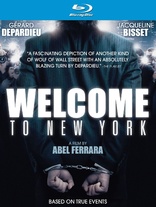
Movie rating
6 | / 10 |
Blu-ray rating
| Users | 3.0 | |
| Reviewer | 3.0 | |
| Overall | 3.0 |
Overview
Welcome to New York (2014)
Intense public fascination and life-changing personal crises ensue after a wealthy French lawyer and politician is charged with sexual assault by a hotel maid in the United States.
Starring: Jacqueline Bisset, Gérard Depardieu, Drena De Niro, Paul Calderon, Shanyn LeighDirector: Abel Ferrara
| Drama | 100% |
| Crime | Insignificant |
Specifications
Video
Video codec: MPEG-4 AVC
Video resolution: 1080p
Aspect ratio: 1.78:1
Original aspect ratio: 1.85:1
Audio
English: DTS-HD Master Audio 5.1 (48kHz, 24-bit)
English: LPCM 2.0 (48kHz, 24-bit)
Subtitles
English SDH, Spanish
Discs
25GB Blu-ray Disc
Single disc (1 BD)
Playback
Region A (B, C untested)
Review
Rating summary
| Movie | 3.0 | |
| Video | 4.5 | |
| Audio | 4.0 | |
| Extras | 0.5 | |
| Overall | 3.0 |
Welcome to New York Blu-ray Movie Review
Now Spread 'Em
Reviewed by Michael Reuben August 26, 2015Writer/director Abel Ferrara's Welcome to New York is a tale of two controversies. The first is the infamous case of former IMF head Dominique Strauss-Kahn, who was charged in 2011 with sexually assaulting a New York City hotel maid. Although the charges were later dropped after doubt was cast on the maid's credibility, related allegations continued to surface about Strauss-Kahn, effectively ending his once-promising career in French politics. Ferrara, for whom the story's mix of sex, money and power must have been irresistible, set about scripting (with co-writer Chris Zois) a thinly disguised docudrama version of the Strauss-Kahn affair, with appropriate disclaimers vetted by attorneys. The second controversy came after Ferrara delivered his 125-minute director's cut to production company Wild Bunch. Apparently Ferrara did not have final cut, and Wild Bunch and distributor IFC Films had concerns about the film's commercial potential. When Ferrara refused to make changes, Wild Bunch proceeded to finalize a 108-minute, R-rated theatrical version, using an editor other than Anthony Redman, the film's credited editor. (It's an indication of how tangled this story is that no one has yet identified the editor who did the work.) To date, this R-rated theatrical cut is the only version to be released in the U.S. Charges, countercharges, angry interviews and threats of lawsuits have been exchanged, liberally spiced with bile and expletives on Ferrara's side. However, since no one other than the parties and their attorneys has seen the contracts, reporters have been unable to do anything but report the conflicting allegations. Meanwhile, Ferrara's director's cut played at the 2014 Cannes Film Festival. It has also appeared on a Region B-locked Blu-ray in England, which we have previously reviewed here. MPI Media is releasing the R-rated theatrical version on Blu-ray. It would not surprise me if, at some future date, after both sides have finished huffing and puffing at each other, Ferrara's director's cut is also released. In the meantime, here's a look at what we have.
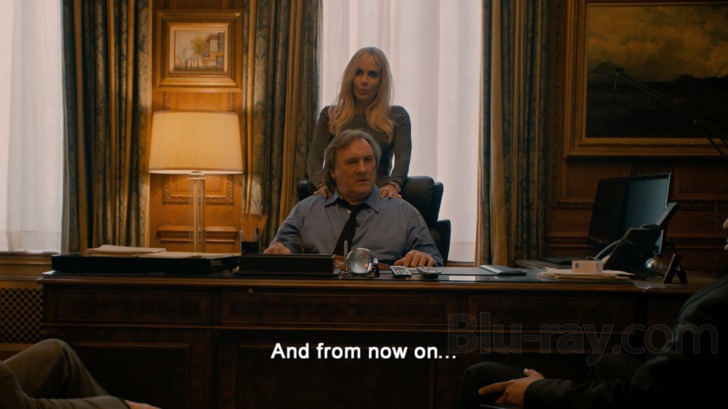
The film's credits are preceded by a short clip of actor Gérard Depardieu being interviewed about playing the role of Devereaux, who is the film's barely disguised version of Strauss-Kahn. After the credits, it picks up with Devereaux in his Washington, D.C. office just before he departs on his fateful trip to New York. In Depardieu's portrayal, Devereaux is a man used to being surrounded by caretakers. He is not so much pampered as looked after. He may wheel his own luggage to the plane, but there is always plenty of space available for him in the overhead bins and a beverage immediately served to him when he sits down. At his hotel, a pretty young staffer meets him at the front desk to escort him to his room. When he enters his suite, two colleagues are awaiting him with champagne and escorts. Devereaux doesn't even stop to remove his coat before he is on top of one of the women. The portrayal of Devereaux as a creature of spontaneous indulgence continues such that his abuse of the hotel maid (Pamela Afesi) the next morning is simply one drop in a sea of hedonistic excess. It means as little to Devereaux as the inappropriate remarks he makes to his daughter (Marie Mouté) and her boyfriend (JD Taylor), when he meets them for lunch afterward. He has already forgotten all about it when he is arrested. (It should be noted that the scene depicting Devereaux's assault is one of the key points of contention between Ferrara and Wild Bunch. In Ferrara's version, the scene plays out in its entirety, but in the version presented here, it cuts off just after Devereaux approaches the maid, then resumes later as a flashback, when she is telling her story to the police.) Welcome to New York changes tone both dramatically and visually with the entrance of two NYPD officers (James Heaphy and Louis Zaneri) responding to a call from hotel personnel. As the machinery of law enforcement kicks into gear, the invisible wall of privilege surrounding Devereaux tumbles down. He goes into a kind of shock, as he is led off a departing international flight in handcuffs toward the sign at JFK that says "Welcome to New York". It might as well say "Welcome to a new reality". To Ferrara's credit, both in this version and (according to what I have read) in his preferred cut, he does not subject Devereaux to any indignity beyond standard intake and processing in the criminal justice system. But the contrast between such treatment and the carefree banker's previous life is stark enough without any need for exaggeration. Although most discussion of Wild Bunch's edits has focused on the film's first half, it is obvious that trims occurred throughout the film, because the latter half suffers from abrupt transitions and choppy pacing. This is most noticeable in a sequence involving what appears to be a consensual tryst between Devereaux and a young woman (Emmanuelle Vill) who is roughly the age of his daughter; it's an apparent flashback with no discernible connection to the story. What Wild Bunch's tinkering has left intact, however, is the element of Welcome to New York that struck me most forcibly, which is the performance by Jacqueline Bisset as Devereaux's wife, Simone, the film's version of Anne Sinclair, third wife of Dominique Strauss-Kahn. If the first half of Welcome to New York paints an unflattering portrait of an indulged monster, Simone's appearance helps explain how he got that way. Devereaux refers to himself as a sex addict, and it gradually becomes clear that Simone has been his enabler. Though furious at her husband's antics, it is Simone who flies to New York, rents an expensive private residence, oversees the legal team and posts the $1 million bond that frees Devereaux from his prison cell. The couple's arguments after his release are bitter and revealing. Despite full knowledge of her husband's predilections, Simone has been pushing him toward a career in politics, even though the pressure of such a life is precisely the kind of strain that is guaranteed to expose a person's vulnerabilities and character flaws. As Simone rages at Devereaux over a betrayal that was utterly foreseeable, Bisset makes this wealthy and powerful woman every bit a match for her husband in monstrous inhumanity. (The film also strongly hints that she paid off unnamed people to obtain the dismissal of his indictment.) Welcome to New York raises provocative questions about the behavior of a man like Devereaux (or Strauss-Kahn). Where does it come from? How does it flourish for so long without detection? Is it enough to punish the perpetrator while ignoring the network of aiders and abettors who made his misconduct possible? At the film's end, a free but disgraced Devereaux stares at the camera, and perhaps he is reflecting on such questions. Or maybe his mind is a blank. As he tells the psychiatrist hired by his lawyers to evaluate him, he has no feelings. He doesn't appear to have thoughts either. He has been reduced to a bundle of sensory organs, drifting from one experience to the next—and such a creature could have been elected President of France. (Note that the film score of 3.0 is provisional and subject to revision after I have seen the complete version of the film.)
Welcome to New York Blu-ray Movie, Video Quality 
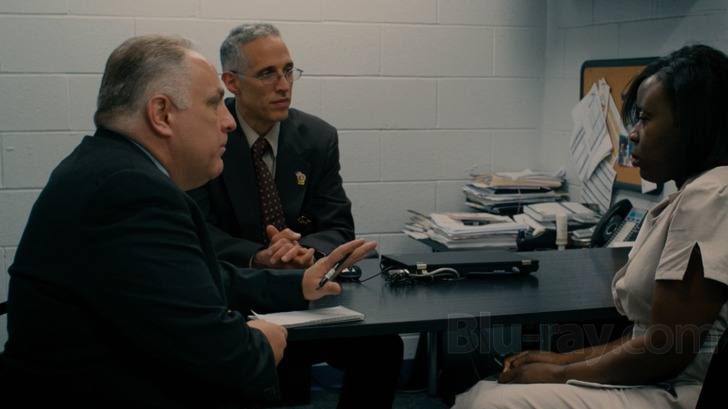
Specific information about the shooting format of Welcome to New York was unavailable, but the film was shot digitally by Ferrara's frequent collaborator, cinematographer Ken Kelsh. Post-production was completed on a digital intermediate, from which MPI Media's 1080p, AVC-encoded Blu-ray was presumably sourced by a direct digital path. The Blu-ray image is sharp and detailed with solid blacks and an absence of artifacts or noise. Saturated colors dominate in Devereaux's world of privilege, both in the earlier scenes of debauchery and when Simone arrives to take charge. A more naturalistic (and cooler) palette prevails whenever law enforcement dominates the picture. MPI has mastered the film with an average bitrate of 22.32 Mbps, and the compression appears to have been done with care.
Welcome to New York Blu-ray Movie, Audio Quality 
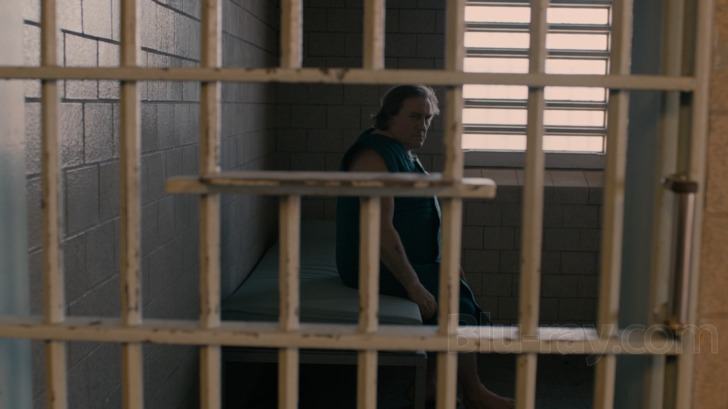
Welcome to New York's original 5.1 soundtrack has been encoded in lossless DTS-HD MA. The sound design provides a quiet sense of ambiance for a wide variety of environments, ranging from Devereaux's Washington office to the city jail cells where he is initially remanded without bail. However, the focus remains on dialogue, which is spoken in a mixture of English and subtitled French and is clearly rendered (although Depardieu's accent remains as thick as ever). There is no underscoring, but several songs have been composed for the soundtrack, including "Every Lie's a Tear", written by Ferrara and performed by Amy Ferguson. As is typical of MPI's releases, an alternate PCM 2.0 track is included.
Welcome to New York Blu-ray Movie, Special Features and Extras 
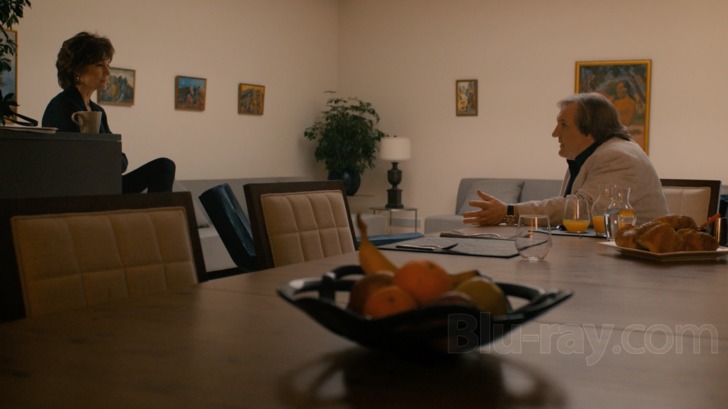
Other than a trailer (1080p; 1.78:1; 1:45), the disc has no extras. At startup, the disc plays trailers for 4:44 Last Day on Earth, Camp X-Ray, Match and The Riot Club, which can be skipped with the chapter forward button and are not otherwise available once the disc loads.
Welcome to New York Blu-ray Movie, Overall Score and Recommendation 
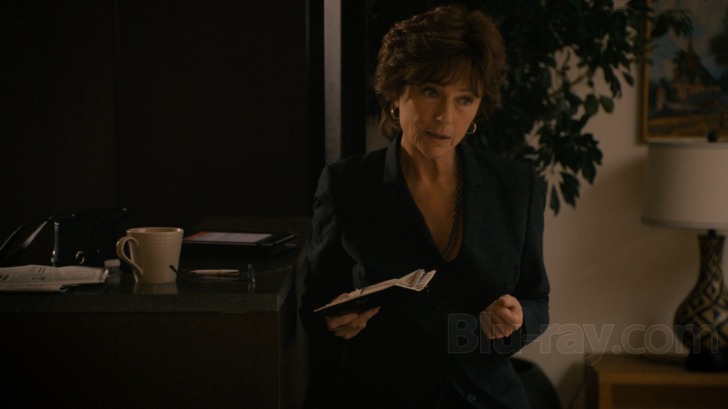
Although I have not seen Abel Ferrara's complete version of Welcome to New York, I have read a description of the major differences between the director's cut and the Wild Bunch theatrical release contained on this Blu-ray. Some of these differences appear to be meaningful, although the essential story has survived intact. The film is good enough, and the subject of sufficient importance, that I look forward to revisiting it whenever Ferrara's version becomes available here. For now, I can't quite recommend a purchase of this Wild Bunch version, but it is certainly worth renting for the experience of the two lead performances and the director's matter-of-fact presentation of debauchery that gets doused with a pail of cold-water reality. With any luck, we'll have the director's cut soon enough.
Similar titles
Similar titles you might also like

Pickpocket
1959

Goodbye to Language 3D
Adieu au langage
2014

If Beale Street Could Talk
2018

A Touch of Sin
天注定 / Tian zhu ding
2013

Capital
Le capital
2012

First Reformed
2017

Equity
2016

Les Miserables
I miserabili
1934

Transit
2018

Scum
1979

La Bête Humaine
1938

Get the Gringo
2012

36th Precinct
36 quai des Orfèvres
2004

Diva
1981

Boxcar Bertha
1972

The Image Book
Le livre d'image
2018

Taxi
2015

Her Smell
2018

True Story
2015

Carlito's Way 4K
1993